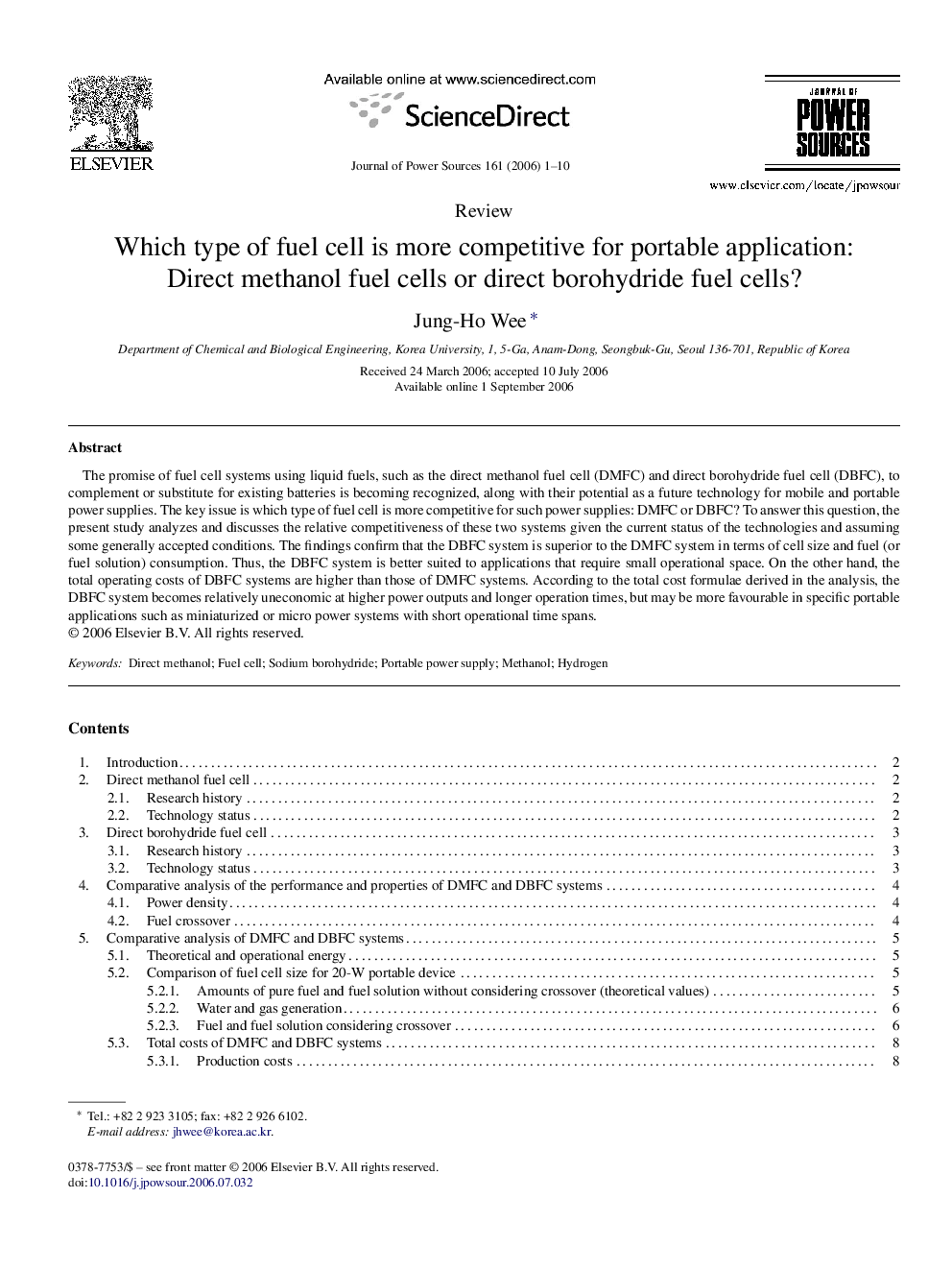| Article ID | Journal | Published Year | Pages | File Type |
|---|---|---|---|---|
| 1286964 | Journal of Power Sources | 2006 | 10 Pages |
The promise of fuel cell systems using liquid fuels, such as the direct methanol fuel cell (DMFC) and direct borohydride fuel cell (DBFC), to complement or substitute for existing batteries is becoming recognized, along with their potential as a future technology for mobile and portable power supplies. The key issue is which type of fuel cell is more competitive for such power supplies: DMFC or DBFC? To answer this question, the present study analyzes and discusses the relative competitiveness of these two systems given the current status of the technologies and assuming some generally accepted conditions. The findings confirm that the DBFC system is superior to the DMFC system in terms of cell size and fuel (or fuel solution) consumption. Thus, the DBFC system is better suited to applications that require small operational space. On the other hand, the total operating costs of DBFC systems are higher than those of DMFC systems. According to the total cost formulae derived in the analysis, the DBFC system becomes relatively uneconomic at higher power outputs and longer operation times, but may be more favourable in specific portable applications such as miniaturized or micro power systems with short operational time spans.
